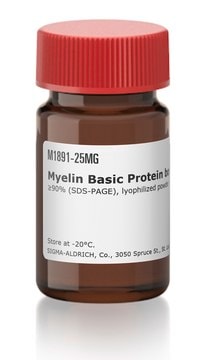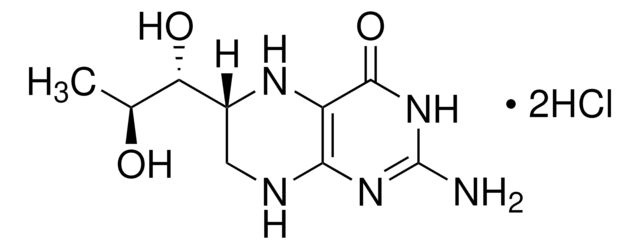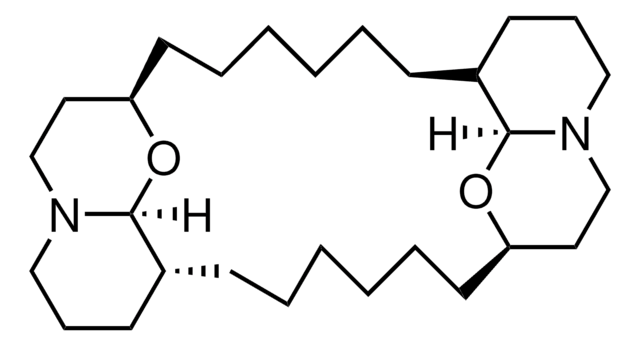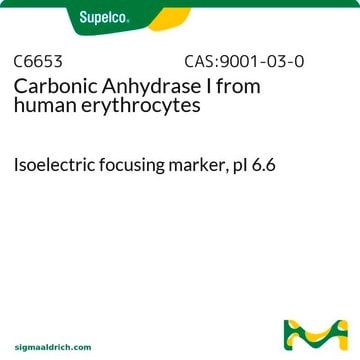P1431
Calmodulin from bovine testes
BioUltra, ≥98% (SDS-PAGE), lyophilized powder, essentially salt free
Sinonimo/i:
CaM, Phosphodiesterase 3′:5′-cyclic nucleotide activator
About This Item
Prodotti consigliati
Origine biologica
bovine testis
Livello qualitativo
Nome Commerciale
BioUltra
Saggio
≥98% (SDS-PAGE)
Forma fisica
lyophilized powder
PM
16.79 kDa
Condizioni di stoccaggio
(Keep container tightly closed in a dry and well-ventilated place)
tecniche
ligand binding assay: suitable
Impurezze
salt, essentially free
N° accesso UniProt
applicazioni
cell analysis
Temperatura di conservazione
−20°C
Informazioni sul gene
cow ... CALM3(520277)
Cerchi prodotti simili? Visita Guida al confronto tra prodotti
Categorie correlate
Descrizione generale
Calmodulin (CaM) is a Ca2+-sensor protein containing four EF-hand motifs that bind to four Ca2+ ions. It is found ubiquitously in all eukaryotes.
Applicazioni
- as a component of the reaction mixture in PhosphoSens assay to measure Ca2+/calmodulin-dependent protein kinase II α (CaMKIIα) substrate phosphorylation
- to generate standard curve for the determination of in situ calmodulin concentration in tissues
- as a ligand in radio-ligand binding for studying calmodulin affinity
Azioni biochim/fisiol
Anticorpo
Prodotti correlati
Codice della classe di stoccaggio
11 - Combustible Solids
Classe di pericolosità dell'acqua (WGK)
WGK 3
Punto d’infiammabilità (°F)
Not applicable
Punto d’infiammabilità (°C)
Not applicable
Dispositivi di protezione individuale
Eyeshields, Gloves, type N95 (US)
Certificati d'analisi (COA)
Cerca il Certificati d'analisi (COA) digitando il numero di lotto/batch corrispondente. I numeri di lotto o di batch sono stampati sull'etichetta dei prodotti dopo la parola ‘Lotto’ o ‘Batch’.
Possiedi già questo prodotto?
I documenti relativi ai prodotti acquistati recentemente sono disponibili nell’Archivio dei documenti.
I clienti hanno visto anche
Il team dei nostri ricercatori vanta grande esperienza in tutte le aree della ricerca quali Life Science, scienza dei materiali, sintesi chimica, cromatografia, discipline analitiche, ecc..
Contatta l'Assistenza Tecnica.













